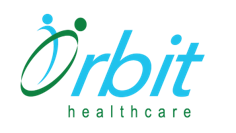AI Agents in Healthcare
How AI AGENTS are increasingly becoming healthcare’s new workforce
Less than 1% of enterprise software applications included agentic AI in 2024. But by 2028, usage will surge to 33%.

Here’s what this will mean for the healthcare industry
Healthcare AI agent: An AI system or program that autonomously performs tasks for a human or another agent
- They are not just:
- Chatbots
- Automation systems
- Digital employees
- They are much more:
- Given autonomy for completing tasks
- Capable of working without human input
- Able to improve performance based on outcomes
AI agents are now emerging in front and back office operations, especially within administrative workflows such as:
- Insurance Capture and Verification
- Benefits identification & out of pocket cost estimation
- Inbound Referral processing
- Medical Necessity pre qualification for prior authorization
- Prior Authorization submission and status verification
- Indexing inbound documents
- Payer correspondence letters
- Prescription refill request processing
- Lab requisition forms
- For the healthcare industry, this is leagues above generic AI
- Especially since public-facing models are typically:
- Trained on limited or biased data
- Limited access to private data
- Limited to what data they can access
- Healthcare records, EHR systems, prescriptions & more
- Faced by policy and regulatory barriers
- Not necessarily HIPAA compliant
In 2024, three in five (66%) physicians said they used AI.
The top area of opportunity?
“Addressing administrative burden through automation,”
which often begins with AI agents.
How Healthcare Organizations are Adopting AI Agents
- How they’re transforming the ‘backend’ of healthcare
- Autonomous insurance verification agent (time savings: | cost savings: )
- Extract and interpret data from insurance cards, referral orders, and requisition forms
- Instantly identifies payer and verify benefits in real time from card images
- Detects coordination of benefits and carve-outs
- Estimates patient out-of-pocket costs
- Extract and interpret data from insurance cards, referral orders, and requisition forms
- Autonomous insurance verification agent (time savings: | cost savings: )
- Enhanced benefit verification agent
- Use payer portals and AI voice calls to identify service-specific requirements
- Bridge gaps traditional verification misses
- Fewer denials due to incomplete or missing data
- Identify provider network status and authorization requirements
- Use payer portals and AI voice calls to identify service-specific requirements
- Insurance discovery agent
- Find hidden payment coverages using just patient demographics — no insurance card or additional info required
- Quickly overturns denials tied to missing or incorrect coverage
- Maximizes revenue capture
- Eliminates manual insurance searches and patient calls
- Find hidden payment coverages using just patient demographics — no insurance card or additional info required
- Prior authorization automation agent
- Fully automate the prior authorization process from medical necessity checks to submission, then track its real-time status across payers
- Eliminates payer guideline spreadsheets so you can stay current without manual tracking
- Speeds up processing times
- Cuts costs from staff retraining due to shifting payer rules
- Fully automate the prior authorization process from medical necessity checks to submission, then track its real-time status across payers
- Document processing workflow automation
- Read, understand, and act on a wide variety of documents — referrals, medical notes, and payer correspondence — without sapping time from human employees
- Streamlines document processing
- Eliminates manual efforts to validate information
- Reduces manual data entry and boost data accuracy and accessibility
- Read, understand, and act on a wide variety of documents — referrals, medical notes, and payer correspondence — without sapping time from human employees
- Which leads to a better-quality life and reduces administrative burdens for:
- Provider Groups
- Health Systems
- Ambulatory Services
- The numbers speak for themselves:
- 20% increase in revenue through increased productivity
- 50+ hours saved through providers weekly using AI-powered document processing automations
- 40% – 70% cost savings by deploying Orbit AI agents
- 24 hours to 24 seconds in referral processing time
- And better outcomes for patients
- Faster diagnoses
- Customized treatment
- More time spent with doctors, nurses, and human care staff
- Increased patient satisfaction through improved patient experience
71% of healthcare workers think agentic AI will be essential to healthcare in the next five years.
But how do we bridge the gap between interest and adoption?
What It Will Take to Bring AI Agents to the Healthcare Industry?
“AI agents are poised to revolutionize the healthcare industry, which has long struggled with labor shortages and administrative overload.” — Amit Khanna, SVP & GM of Health at Salesforce
- Solutions that:
- (83%) Help healthcare workers spend less time on administrative tasks
- (83%) Ensure staff can do their jobs more efficiently
- (79%) Provide access to reliable data
- (77%) Be easy to use
- (73%) Come with proper training
- (73%) Offer trustworthy, accurate outputs
Orbit Health AI Agents Are Leading the Charge
- AI agents designed to:
- Enhance patient experiences
- Streamline operations
- Boost efficiency
- Cut costs
- Specifically for healthcare organizations such as clinics, hospitals, and nursing homes
AI agents unlock savings, grow revenue, and give your team time back for what matters most: patient care.
Sources
Sources:
https://www.gartner.com/en/articles/intelligent-agent-in-ai
https://www.brookings.edu/articles/why-is-ai-adoption-in-health-care-lagging/
https://www.ama-assn.org/press-center/ama-press-releases/ama-physician-enthusiasm-grows-health-care-ai
https://www.salesforce.com/news/stories/healthcare-ai-agent-research/
